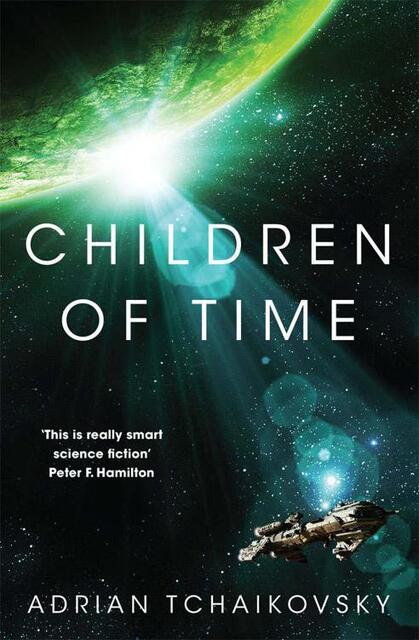- (https://b-ark.ca/ksKKwg)
I’m riding in the 2025 Enbridge Tour Alberta for Cancer, raising money for the Alberta Cancer Foundation, and have so far raised $2,744, exceeding my $2,500 goal and surpassing my 2024 effort!
Help me by donating here
And remember, by donating you earn a chance to win a pair of hand knitted socks!
Single Sourcing My CV
Part two of two on single sourcing content, this time covering my CV, which starts as YAML and ends up as HTML, PDF, and even a Word doc.
As I mentioned in my previous post, my blog is often both a place to throw ideas out into the world, and a place to mess around with screwy ideas, and one of those ideas I’ve been messing around with is using Jekyll’s abilities as a static site generator to produce multiple outputs from a single source.
The first experiment in this area involved my cookbook, wherein I took a bunch of individual markdown files and crammed them together into something that pandoc can use to generate PDF and even EPUB outputs.
My second experiment in this area was with my CV. The challenge with something like a CV is that the layout requirements are pretty complex and don’t fit well with a basic template-and-markdown model. As a result, I ended up having to take a less orthodox approach to this project.
Continue reading...Single Sourcing My Cookbook
Part one of two on single sourcing content to produce multiple attractive outputs. In this case, a write-up about the creation of my personal cookbook!
Note: This was originally going to be a single post about both my Cookbook and my CV, but it turns out I can really ramble, so I’m splitting it into two posts.
One of the benefits of using a static site generator (in my case Jekyll) to build this website is that all the underlying content is stored in simple text files. Most of the page content itself is just markdown files with a YAML header block. The page layout is simple HTML templates using liquid macros. Formatting is SASS that’s transformed into vanilla CSS.
This has a few of benefits. First, the site is future-proofed–plain text means I can move to a different engine any time I want, as the content is stored in a format that’s easy to extract and transform. Second, the ecosystem of tools to handle text files generally, and YAML and markdown specifically, is enormous, which means I can lean on all that existing infrastructure to do interesting things.
In this post I’ll cover the first of two examples where I’ve taken advantage of these benefits to produce, not just this website, but beautiful PDFs, ebooks, and even Word documents, from the same source content.
Continue reading...- (https://b-ark.ca/qOWSGw)
GigE switch freezing. One port getting spammed. Port is for my laptop dock. Laptop was hibernating and should be turned off. Undock laptop. Problem solved. Bafflement ensues.
- (https://b-ark.ca/6IM_2G)
Finished </span> <a class="p-name" href="https://www.panmacmillan.com/authors/adrian-tchaikovsky/children-of-time/9781447273301">Children of Time</a> <span>(<a href="https://en.wikipedia.org/wiki/Children_of_Time_(novel)">Children of Time</a> #1.0)</span>by
(9781447273318) </span>
- (https://b-ark.ca/gmeSoC)
Day before ski trip, car trouble (for the second time). We borrow a car. Day of ski trip phone dies. Find backup phone. Now that’s what I call luck!
- (https://b-ark.ca/EMu4GE)
Congratulations to the Framework team on their Series A! I’m a huge fan of the product and the company, and this cash infusion greatly increases the odds they’ll be around for the long term!
- (https://b-ark.ca/MWAOkg)
The Wordle drama illustrates what’s wrong in the digital economy. Elon Musk “earns” 200B and he’s a visionary. @powerlanguish is rewarded for a game played for free by millions and he’s crucified.
- (https://b-ark.ca/G0KW8C)
Did you know that cache partitioning in modern browsers means loading shared assets (fonts, js libs) from a 3rd party CDN (e.g. Google) no longer offers significant performance gains while it compromises the privacy of your users?
- (https://b-ark.ca/y6eC8c)
Trying to brew coffee with my Moka Pot. Forgot to put in coffee basket. Puzzled why no coffee. Proof I need coffee.
- (https://b-ark.ca/c_6AAM)
Do knowledge workers experiencing their equivalent of the yips? During my yearly staff reviews, I found myself facing the sudden and unexplained loss of the ability to evaluate staff performance…
Review: Leviathan Falls
Review of Leviathan Falls (The Expanse #9.0) by James S. A. Corey (9780316332910)★★★★
(https://b-ark.ca/G6KEUU)A review of the last book of The Expanse series, which brings to a satisfying close one of the finest sci-fi series I’ve ever read.

The Laconian Empire has fallen, setting the thirteen hundred solar systems free from the rule of Winston Duarte. But the ancient enemy that killed the gate builders is awake, and the war against our universe has begun again.
In the dead system of Adro, Elvi Okoye leads a desperate scientific mission to understand what the gate builders were and what destroyed them, even if it means compromising herself and the half-alien children who bear the weight of her investigation. Through the wide-flung systems of humanity, Colonel Aliana Tanaka hunts for Duarte’s missing daughter. . . and the shattered emperor himself. And on the Rocinante, James Holden and his crew struggle to build a future for humanity out of the shards and ruins of all that has come before.
As nearly unimaginable forces prepare to annihilate all human life, Holden and a group of unlikely allies discover a last, desperate chance to unite all of humanity, with the promise of a vast galactic civilization free from wars, factions, lies, and secrets if they win.
But the price of victory may be worse than the cost of defeat.
Disclaimer: This review is coming about a week since I finished this book, and I neglected to take notes right after I was done. So note to my future self, my memories are a bit fuzzier than usual with this one. This is exacerbated by the fact that I chose to re-read Persepolis Rising and Tiamat’s Wrath prior to reading this book, so the narrative has definitely blended together in my head.
With all that said, to get it out of the way: if you haven’t read The Expanse and you’re at all a science fiction fan, just a quick note that you need to go out and start reading Leviathan Wakes right now! The Expanse is undoubtedly one of the finest hard science fiction series out there (and has been adapted into an utterly fantastic TV series as well). I could go on and one about why I feel that way, but quite frankly, that’s pretty well-trod ground at this point.
But, after a ten-year-long journey, this incredible series of books and novellas is finally coming to a close.
Now, full disclosure, I will attempt to avoid major spoilers for this specific book in this review, but it’s going to be tough to avoid that with the previous two books in this trilogy. As a result, if you haven’t read this series at all and think you might, or if haven’t gotten around to reading books seven and eight, then it’s probably best to stop now.
Alright, with that disclaimer out of the way, let’s get right into it!
Continue reading...- (https://b-ark.ca/OGyW_Q)
I can’t help but wonder if the writers of Babylon 5 saw the MST3K riff of Laserblast before writing Infection…
- (https://b-ark.ca/cqYmMW)
Yesterday was the 45 anniversary of one my absolute favourite Pink Floyd albums: Animals. Much is made Gilmour’s virtuosity on the album but Waters’ writing is brilliant here, and would presage many great concept albums to come!
- (https://b-ark.ca/42wyMo)
Happy birthday 10th, Bridgy! If you’re reading this on Twitter, that’s because of this wonderful project. Thank you so much, Ryan, and everyone who’s contributed!
- (https://b-ark.ca/a_SoMO)
My favourite Slack anti-pattern:
Person: Hey, do you have a minute for a quick call?
Me: Sure!
[15 minutes goes by]
Me: Okay, well, I need to go do something else now, but I’ll be available in 20 minutes.
Person: [attempts to call immediately]
[20 minutes goes by]
Me: Alright, I’m free again.
[10 minutes goes by]
Person: Too late, I’m busy.
Me: 😑😐😡
- (https://b-ark.ca/OmOASa)
Currently reading</span> Children of Time
<span>(<a href="https://en.wikipedia.org/wiki/Children_of_Time_(novel)">Children of Time</a> #1.0)</span>by
(9781447273318) </span>
- (https://b-ark.ca/qkeEIO)
Finished </span> <a class="p-name" href="https://en.wikipedia.org/wiki/Leviathan_Falls">Leviathan Falls</a> <span>(<a href="https://en.wikipedia.org/wiki/The_Expanse_(novel_series)">The Expanse</a> #9.0)</span>by
(9780316332910) </span>
- (https://b-ark.ca/Sy48eQ)
Kudos to @MarmotBasin on the switch to RFID cards! Faster lift lines, online lift ticket purchases, no more need for a lift ticket dangling from your jacket, etc.
- (https://b-ark.ca/0U24Iw)
Currently reading</span> Leviathan Falls
<span>(<a href="https://en.wikipedia.org/wiki/The_Expanse_(novel_series)">The Expanse</a> #9.0)</span>by
(9780316332910) </span>
- (https://b-ark.ca/UKGCSi)
A beautiful letter from father to son before the son shipped out to World War 2. Amazing how these words from 80 years ago carry so much wisdom that we can use today.






